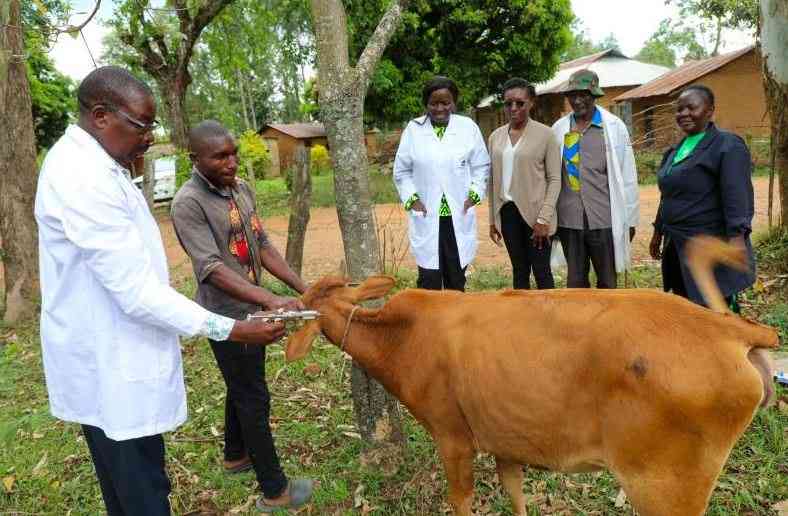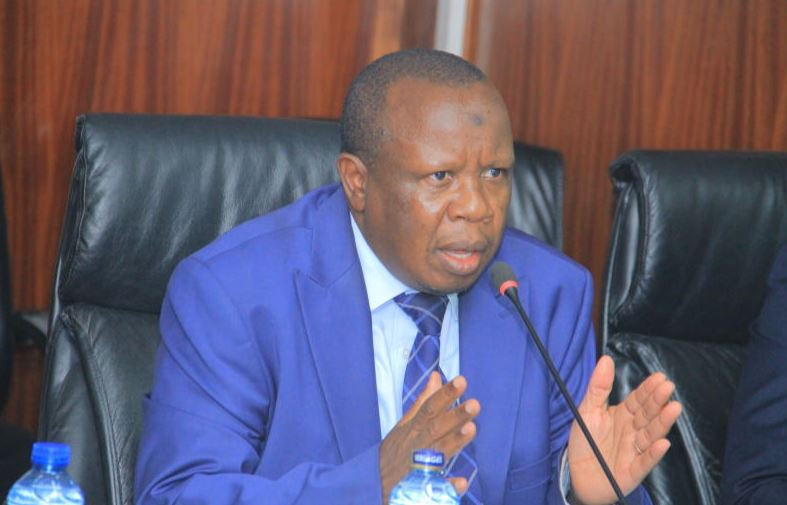When were you diagnosed with HIV, and what has been your experience living with it over the years?
I tested HIV positive in 2003 when I was taken to Sani Abacha Specialist Hospital in Uyo, now University of Uyo Teaching Hospital, Uyo. But it was when I came to Abuja in 2005 for the International Conference on AIDS and STIs in Africa (ICASA) that I was directed to University of Calabar Teaching Hospital in Calabar for treatment.
On my return from ICASA, I went to UCTH where my HIV-positive status was confirmed. I accepted it and followed up. Due to my condition, they started me on medication, and within a week, I began to feel better. Since then, I have been living positively and leading a good life. I monitor my health and adhere to the necessary dos and don’ts.
Also, due to my efforts in raising awareness about HIV, the teaching hospital in Calabar employed me. I currently work there as a Treatment Support Specialist (TSS). My family appreciates and supports me. Apart from my work as a TSS, I am also a farmer. I grow palm trees.
However, some of my friends have discriminated against me, claiming that I alone know the cause of my illness because I was financially well off. They said it was due to evil curses on my money, insisting that my wealth was tainted. Some even claimed that witchcraft caused my illness and suspected my grandmother, which I never believed. But alas, I am still alive and living very happily.
You would be turning 70 years in two months. At the initial stages, did you think that you would live this long?
I was half-dead. I thank God for allowing me to live this long. There was nothing that was not said about me. When I tested positive, everyone said I would die. I even thought I would only live for a few more months, but I am still here.

What is your take on stigma and discrimination against people living with HIV?
Personally, I have overcome stigma.
Stigma is under my feet. People know me by the name Ete-Mbo. Some try to stigmatize me, but I don’t care—I continue going about my normal business.
So, what is your advice for people living with HIV when it comes to stigma and discrimination against them?
My advice is people should go for HIV test. After testing, they should accept the results. Acceptance leads to disclosure, and from disclosure, their family will rally around them.
Some people keep it to themselves and blame their illness on witches and wizards. I always advise that whenever you are sick, go to the hospital or even a nearby primary healthcare centre to be tested. If the result is positive, adhere to your medications—that is the only answer.
As someone who has lived with HIV this long, what is your advice for people living with the disease? What lifestyle habits have you adopted?
I advice them to move on with their lives. Self-stigmatisation can be deadly. I always encourage people and serve as a role model to many. I tell them that I continue living my life while taking my medication daily. I also remind them that HIV is not a death sentence.
How did antiretroviral (ARV) medicines help you or revolutionise HIV care?
Antiretroviral medicines (ARVs) are very effective. As soon as you start taking them, you will feel the difference. Take them as you would your daily bread. That is why I continue to live strong and healthy every day. I access my drugs at the University of Calabar Teaching Hospital in Cross River State.
To date, most funding for HIV programmes is donor-driven. Considering the global situation with USAID, what is your advice to Nigeria regarding ownership of the HIV response?
Our leaders know what needs to be done. I continue to speak out whenever I have the opportunity, even at the local level. Without these drugs, we would not live long. I appeal to our leaders to take action and save our lives because, without ARVs, people living with HIV in Nigeria cannot live well. Many of us depend on ARVs.
What should government and other stakeholders do to ensure optimal prevention and treatment for HIV?
Awareness should be raised in rural communities. Many people still do not believe that HIV exists. They think witches and wizards cause it. Leaders, such as councillors, should spread the word so that people can live healthier lives because they are our brothers and sisters.
Testing should be available even in communities. The fact is that some people, even after being tested and informed of their status, refuse to accept it.
How can government and other relevant stakeholders improve the lives of people living with HIV and also reduce prevalence in Nigeria?
The federal government should sponsor everything. We started this initiative in Abuja when I was invited to ICASA. It was there that I met Institute of Human Virology Nigeria (IHVN) staff. I didn’t even know that IHVN was in Calabar.
When I returned from ICASA, I went to Calabar and met IHVN. The way IHVN treated people living with HIV was excellent. They provided nutritional supplements such as Plumpy’Nut and ACTION Meal, which helped us live well and stay healthy.
Now, those supplements are no longer available. I appeal to the federal government to research ways to reinstate this programme so that people living with HIV can feel supported. I feel free because of the care I received. The virus is still present, so awareness should be created in every corner of the country.
How has IHVN contributed to your health?
They have done a lot for me; they are the reason I am still alive today. I met IHVN at ICASA, and they referred me to the University of Calabar Teaching Hospital. When I returned to Ebughu in Akwa Ibom State, I later crossed back to Calabar and met them at the teaching hospital.
I have been with them ever since. They have supported me greatly by recommending that the teaching hospital absorb me as one of their Treatment Support Specialists (TSS). I am still working there as a staff member of the teaching hospital, and I have truly benefited from their support.
As a TSS, my role is to create awareness, bring people together, and encourage them to access treatment. I also coordinate support groups that meet once a month. However, for about a year now, we have stopped receiving sponsorship for support groups, including transportation and refreshments.
As you plan to mark 70 years in two months, do you plan to celebrate in a big way?
I will celebrate, but I would not be doing well if I did not mention HIV in my story. People know my HIV journey. Even in church, when I teach Sunday school, I talk about HIV.
I have eight children. My grandchildren are 22, and I have two great-grandchildren.
On my 70th birthday celebration, my children, grandchildren and great grandchildren will rejoice with me. I am very happy to be called a great-grandpa and grandpa. I am also deeply grateful to IHVN because they have given me a new lease on life.
What is your advice on diet for people living with HIV?
I advise people to include plenty of vegetables in their diet. There are many nutritious vegetables available, such as waterleaf and Afang. My meals always include vegetables and fruits. We should also reduce fried foods and focus on properly cooked meals with vegetables for better health.
How do you keep fit?
Going to the farm in the morning is a form of exercise for me. I am also a footballer, but my grandchildren have stopped me from playing on the field. If I do not go to the farm, I take walks in the evenings.
In other countries, extensive research is being conducted for a HIV vaccine, twice-yearly injection for prevention instead of taking drugs and shorter treatment- regimen. What are your thoughts on this?
If Nigeria introduces such medication, I will be very happy. I will be the first to take it because I truly need something like that. If this treatment becomes available, it will bring great relief to many people.
Currently, some individuals feel stigmatised and ashamed when they have to visit the hospital every two or three months to collect their medication.
A long-acting treatment would help reduce this stigma and make life easier for people living with HIV.
What are your final words to Nigerians?
The government should put in more effort, and people living with HIV should be involved in every aspect, including policymaking. After all, those who wear the shoes know where they pinch.









